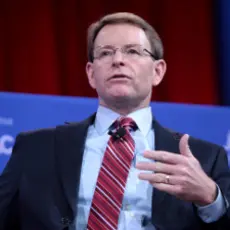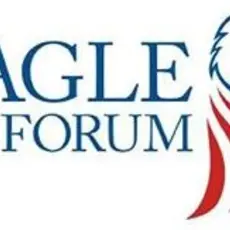While good-government groups have been calling for a constitutional amendment to reverse the Supreme Court’s dismantling of campaign finance laws since the day the Court handed down Citizens United in 2010, the issue has been largely off the radar of conservative activists – and has actually enjoyed broad bipartisan support in an array of polls and in state and municipal ballot measures.
It was largely off their radar, that is, until this week. This morning, the Senate Judiciary Committee held a hearing on a proposal by Sen. Tom Udall, D-N.M., to send a constitutional amendment to the states restoring to Congress and state governments the ability to regulate the raising and spending of money in elections. In response, Republican politicians and conservative activists have kicked into gear and are starting to try out new talking points to get their movement to oppose efforts to lessen the influence of big money in politics.
Sen. Ted Cruz, R-Texas, launched the misleading campaign two weeks ago when he warned a group of pastors that the Udall proposal would “repeal the First Amendment” and allow Congress to “muzzle” the free speech of clergy. In advance of the hearing today, conservative groups including the Family Research Council, Eagle Forum, Tea Party Patriots and the Home School Legal Defense Association started to mobilize against the amendment. Yesterday, the Heritage Foundation held a panel discussion to test out arguments against the amendment, featuring Bobby Burchfield, the attorney who argued the McCutcheon case before the Supreme Court, controversial former FEC chairman Don McGahn, and infamous voter-fraud conspiracy theorist Hans van Spakovsky .
Here, we’ve collected some of the most deceptive arguments that have been launched so far against the Udall amendment.
1. Democrats want to repeal the First Amendment!
When we first heard Ted Cruz tell a stunned group of pastors that Democrats in the Senate were planning to “repeal the First Amendment,” we knew that we would be hearing that line again and again.
And we were right. Tea Party Patriots adopted the line in mobilizing its activists, as did the Eagle Forum. The Family Research Council claimed the Udall amendment would “strip political speech out of the First Amendment,” and von Spakovsky told the Heritage panel that the amendment would “roll back” the Bill of Rights.
Burchfield and McGahn both argued that the introduction of the constitutional amendment means, in the words of McGahn, that campaign finance law advocates are “admitting” that campaign finance regulations are “unconstitutional.”
On the surface, this is the opposition’s strongest argument, because it sounds so scary. But it’s just not true. Whether you support the Udall amendment or not, it’s dishonest to suggest that it would amount to a “repeal of the First Amendment.” Instead, proponents argue that it strengthens the First Amendment by undoing the Supreme Court’s jurisprudence declaring that spending on elections, including from corporate treasuries, cannot be limited. Proponents of the Udall amendment hold that this jurisprudence, including recent decisions in the Citizens United and McCutcheon cases, represented a radical reinterpretation of the First Amendment; undoing them would simply re-establish the ability of Congress and the states to set reasonable regulations on the raising and spending of money to influence elections.
2. Amendment supporters want to ‘silence critics’ and ‘cling to power’!
The Heritage panelists repeatedly claimed that the Udall amendment is an attempt to protect incumbency by preventing challengers from raising enough money to win elections. McGahn insisted that it was an effort by Democratic incumbents “desperately clinging to power.”
“They want to change the rules of the game and prevent people from criticizing them, not unlike England did before our revolution, and which led to our revolution,” he added.
The American Family Association’s Sandy Rios also invoked the American Revolution in an interview with von Spakovsky yesterday, saying, “The First Amendment, the rights to free speech – particularly the right to political speech – were the right to criticize the king, criticize the authorities over you.”
In a later interview with Rios, Tea Party Patriots spokesman Scott Hogenson even managed to connect the Udall amendment with immigration reform, claiming that both are part of a “larger, concerted effort to maintain the Democratic Party’s control of American politics and eventually move to one-party rule.”
In reality, it’s unlimited campaign spending that tends to be a boon for incumbents, who on average are able to raise far more than challengers. For instance, in Texas, a state with few campaign finance limits, incumbents who win on average raise more than twelve times the average amount raised by challengers. By contrast, in Colorado, which has relatively low individual contribution limits, incumbents on average raise less than three times what challengers are able to raise [pdf].
3. Liberals just want to protect the lame-stream media!
In his speech to the pastors' group, Ted Cruz seized on the Udall proposal’s stipulation that “Nothing in this article shall be construed to grant Congress the power to abridge the freedom of the press” to claim that the amendment carved out an exemption to protect the New York Times.
Von Spakovsky also played up conservative conspiracy theories about the “liberal media,” telling Rios, “No surprise, there’s a glaring exception in this proposed amendment for the press. And that means that MSNBC or the New York Times Company, which are big corporations, they could spend as much newsprint or airtime as they wanted going after and criticizing candidates or talking about political issues.”
These arguments fail to recognize one key distinction, which is that there is a difference between the New York Times publishing an editorial (which would be protected under the proposed amendment, as it is now) and the corporate managers of the New York Times taking $50 million out of their corporate treasury to buy ads to influence an election (which would not be protected).
4. They’ll go after pastors!
Opponents of the constitutional amendment have also been trying to tie the proposal to the right-wing paranoia about the impending persecution of America’s Christian majority .
It’s no coincidence that Cruz rolled out his criticism of the Udall proposal at a pastors’ event organized by the Family Research Council, a main theme of which was the supposed assault on the religious liberty of Christians in America. Cruz told the pastors that the Udall measure would “muzzle” clergy and was being proposed because “they don’t like it when pastors in their community stand up and speak the truth.”
Likewise, McGahn said at the Heritage event that the amendment would endanger the religious liberty of clergy: “What about pastors and churches? This is an issue that comes up once in a while. Can the government get in there and tell a priest he can’t talk to his congregation because it may somehow have something to do with politics?”
This might be true if the proposal would, in fact, “repeal the First Amendment.” In fact, the First Amendment’s protection of religious liberty would remain in place.
Of course, that didn’t stop the FRC’s Tony Perkins from somehow linking the Udall amendment to the imprisonment of a Christian woman in Sudan:
5. It’s like the Alien & Sedition Acts!
Along with comparisons to British control before the American Revolution, amendment opponents are trying to link the Udall proposal to the 18th century Alien & Sedition Acts.
In his interview with Rios yesterday, van Spakovsky claimed that “the last time Congress tried to do something like this was when they passed the Alien & Sedition Act in 1798 that criminalized criticism of the government.” Multiple GOP senators at today’s hearing, including Judiciary Committeee Ranking Member Chuck Grassley, repeated the talking point.
Of course, the amendment does nothing to reduce the right of individuals to criticize the government or politicians.
6. The polls are skewed!
When an audience member at yesterday’s Heritage Foundation panel asked about polls showing overwhelming opposition to the Citizens United decision, McGahn replied that the questions in the polls were “skewed.”
You can judge for yourself whether this question from a recent Greenberg Quinlan Rosner poll – which found 80 percent opposition to the Citizens United decision – is “skewed” on behalf of campaign finance law proponents:
7. What about disclosure?
In one of the least self-aware moments we’ve witnessed in the last few days, McGahn told the Heritage audience that campaign finance reform proponents could have just worked for tougher disclosure requirements, which the Supreme Court’s majority has consistently endorsed as a way to prevent corruption:
What’s interesting is the courts have upheld some disclosure of independent speech, which six months ago was supposed to be the answer, a year ago was supposed to be the answer – remember the DISCLOSE Act, Part 1 and Part 2? Well, that was supposed to cure all the ills in our democracy, but unfortunately I guess they’ve given up on that and they’ve moved to the more radical change, which is the constitutional amendment.
Of course, the DISCLOSE Act – which would have exposed the source of some of the “dark money” behind large campaign expenditures – was blocked by Senate Republicans. And McGahn, when he was at the FEC, fought hard against disclosure requirements proposed in the wake of the Citizens United decision, even though the decision explicitly sanctioned such requirements.
8. The poor don’t participate anyway!
Speaking to the Heritage audience, Burchfield presented the curious argument that the Udall amendment would demand to "equalize debate among the haves and have-nots,” and since “the portion is small” of “those with limited means” who participate in electoral debates, this would require “severe restrictions.”
The rich do not advocate a single viewpoint. Think of Sheldon Adelson and George Soros, they don’t agree on anything. There are strong voices on the left and on the right, not just in privately funded campaign advertisements, but also in the broadcast and print media. Only a small portion of those with significant resources even bother to participate in the debate. And among those with limited means, the portion is small indeed. In order to equalize debate among the haves and the have-nots, severe restrictions would be necessary. The quantity and quality of discourse would certainly suffer.
The amendment under consideration doesn’t require that everybody be heard an equal amount; instead, it gives Congress and the states the ability to create a more even platform for those who wish to be heard, regardless of their financial means.
Burchfield's reasoning echoes the arguments of voter-suppression proponents who claim that their laws only inconvenience people who don’t really care about voting anyway.
9. It’s voter suppression!
Although many of the advocates of unlimited, undisclosed money in politics are the same people pushing harmful voter suppression laws, Sen. Pat Roberts of Kansas yesterday insisted that it’s actually amendment proponents who are advocating “voter suppression” and want to “silence” critics.
10. Blame Saul Alinsky!
Inevitably, anti-amendment activists have begun invoking the right-wing bogey-man Saul Alinsky.
Hogenson told Rios that the Udall amendment is “just taken right out of Saul Alinksy’s book, ‘Rules for Radicals,’ it just makes up a gigantic lie and perpetuates it, that somehow democracy needs to be restored.”
Von Spakovsky also invoked Alinsky in his interview with Rios, claiming that criticism of the enormous political spending of the Koch brothers is an Alinskyite plot: “What’s really going on here is, look, if you look at Alinsky’s ‘Rules for Radicals,’ one of the rules that he sets out is you pick a villain and you basically blame those villains for all of the problems. It’s a way of distracting the public, it’s a way of diverting attention, and that’s exactly what Harry Reid and the Democrats are doing here.”








